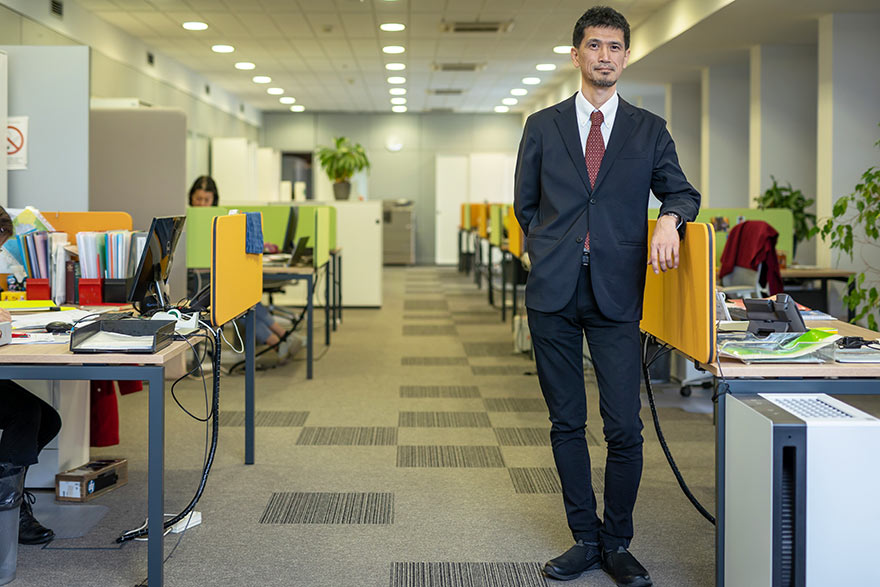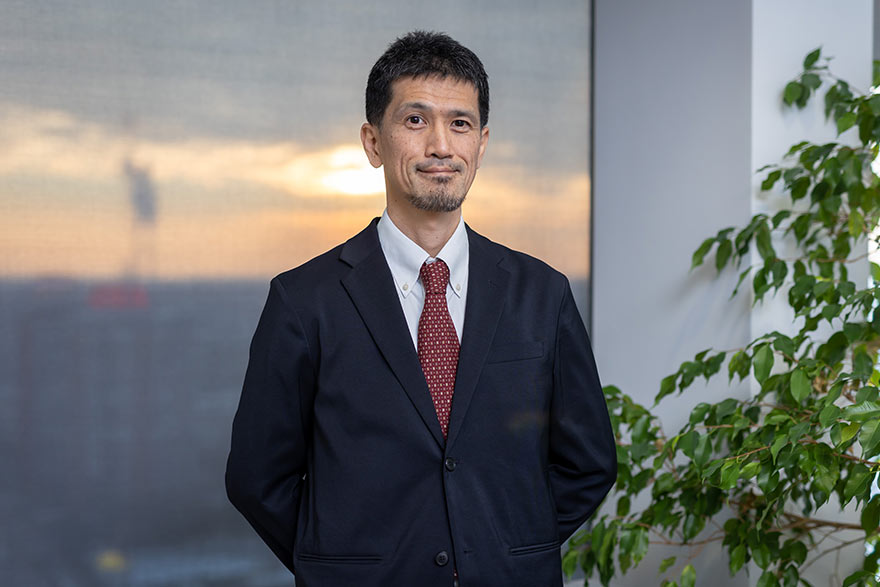Work done by the JICA Balkan Office in 2021, in cooperation with its Serbian counterparts, in many fields – from support to future investments in agri-tourism and volunteerism – demonstrates why every year in the 140-year-long friendship between Serbia and Japan is history in the making
One interview is certainly not enough to explain in detail the plethora of activities performed by the JICA Balkan Office in the year behind us. Nonetheless, Jiro Takeichi, Chief Representative of the JICA Balkan Office, offered us an effective overview of major developments that occurred despite occasional confinement caused by the need to work remotely.
Among the most important highlights are certainly the improvement of public transportation in Belgrade, the pilot project in the area of agriculture and the work of Japanese volunteers engaged in various fields, such as judo, support to people with disabilities and disaster management. On top of all that, the JICA office was also engaged in presenting investment opportunities in Serbia.
While we are slowly approaching the second year of being more or less confined to working remotely, how do you manage to bring together Serbian and Japanese interlocutors to work on projects?
At the JICA Balkan Office, we have successfully combined working from the office and remote working. Due to the improved IT environment in the past two years, we have implemented remote working efficiently and without major obstacles.
On the other hand, as a member of the diplomatic corps, I am really grateful to the Serbian Ministry of Foreign Affairs for providing the Japanese staff at our office the opportunity to get vaccinated. For that reason, we didn’t have to evacuate to Japan and we all remained and worked in Serbia for the past two years. For JICA, continuing to work face-to-face on technical cooperation projects is a very important thing. When Serbian and Japanese counterparts work together, they deepen their mutual understanding and jointly develop solution strategies. It feels like face-to-face activities still have some irreplaceable advantages compared to online activities. Now, due to the rapid spread of the Omicron variant, most activities have reverted back to online platforms.
The JICA office exerted efforts to draw the attention of Japanese companies to Serbia by sharing information. We would now like to combine the forces of the Embassy of Japan, the Japanese Business Alliance in Serbia (JBAS), the Japan External Trade Organization (JETRO) and Japanese companies to advance this endeavour
However, Japanese experts, who adhere fully to the epidemiological measures, are nonetheless being dispatched to Serbia, and I’m grateful to our Serbian counterpart for arranging that.
Looking back on 2021, which of your activities would you highlight as being the most successful?
I would like to mention the Project for the improvement of public transportation, which is being implemented together with the Secretariat for Public Transport of the City of Belgrade. This project aims to establish a sustainable pubic transportation system by offering a service that is aligned with the needs of citizens, and also by improving the system for the payment of commuting tickets. This is additionally related to the creating of a better living environment, provided it results in a decrease in commuting using private cars and an increase in the use of public transport. In 2021, Japanese experts visited Belgrade and finalised the detailed plan of this project, so that activities can proceed at full tilt.

In December, an international seminar on public transportation was organised in Belgrade and was attended by Deputy Mayor of Belgrade Goran Vesić and Japanese Ambassador H.E. Katsumata. Once the pandemic is under control, we hope that our counterparts from the Secretariat for Public Transport can visit Japan and gather some useful ideas for improving Belgrade’s public transport systems. Since 2003, when Japan donated the “yellow buses” to the City of Belgrade, our longstanding cooperation has continued and is definitely an important field in relations between our friendly countries.
What are the major outcomes of your pilot project with the Ministry of Agriculture aimed at improving the living standards of Serbian farmers? We learned that frozen senga-sengana strawberries grown on open fields in Serbia have already been exported to Japan. What’s next?
I enjoy buying delicious fruits and vegetables on the open market every week. Serbian agricultural produce is of high quality and represents a resource with great potential. Through this pilot project, our aim was to change the farmer’s concept from “producing agriculture” to “selling agriculture”. If the produce reaches both domestic and international markets when needed, and in the quantities demanded, then farmers will be able to increase their profit. If there is a request for further cooperation in this field, it will be met with a positive outcome. Moreover, it seems that the development of tourism may also rely on the potential of agriculture and bring more profit to rural parts of Serbia. There is also a possibility for support in that sector.
Through the JOCV programme, Japanese volunteers work together with their Serbian counterparts with the aim of deepening their mutual understanding. The plan is to have 10 or more volunteers in Serbia this year. Perhaps the next volunteer will be dispatched to your town
You are active across the Balkans. How do you perceive the Open Balkan initiative?
If people and products are actively moving, the market will expand and new business opportunities will emerge for companies in the region. However, market expansion is both an opportunity and a challenge for companies. Once Serbia joins the EU, if small and medium-sized enterprises (SMEs) are not sufficiently developed, young people will leave the country and seek job opportunities abroad. In order to develop and offer job opportunities, SMEs need to improve the quality control of their products and services and increase the efficiency of their management structures. It is for this reason that the Development Agency of Serbia (RAS) has developed mentoring services through which trained mentors advise SME entrepreneurs. JICA has been supporting this programme for a long time and technical cooperation on mentoring is this year entering a new phase, which aims to strengthen the mentoring system and branding in the Western Balkan region.
Slowly but surely, we are seeing more Japanese companies arriving on our territory. From your perspective, how can this momentum be sustained and accelerated?
It is evident that Japanese companies are becoming more interested in Serbia and the JICA office received many requests from Japanese companies for consultations on Serbian conditions even during the pandemic. Serbia has many advantages, such as being surrounded by a huge market and having highly skilled human resources, which is further connected to the government’s continuous effort to attract foreign companies. The JICA office has actively participated in investment seminars organised in Japan and exerted efforts to draw the attention of Japanese companies to Serbia by sharing information. Moreover, we would like to tackle even more advanced support, which would strengthen the existing cooperation between the Embassy of Japan, the Japanese Business Alliance in Serbia (JBAS), the Japan External Trade Organization (JETRO) and Japanese companies.

Some of the Japan Overseas Cooperation Volunteers (JOCV) were dispatched to Serbia as of summer 2021. How many of them can we expect in 2022?
Through the JOCV programme, Japanese volunteers work together with their Serbian counterparts with the aim of deepening mutual understanding. By working together, Serbian people can experience Japanese seriousness and work ethics, while Japanese people can learn about Serbian kindness, cheerfulness and hospitality. When Japanese volunteers return to Japan, they continue to promote Serbia as a great country. Besides Belgrade, volunteers have also been dispatched to other places, from Novi Sad in the north to Niš in the south. We currently have a total of six volunteers working in various fields, such as judo, support to people with disabilities, disaster management etc. I’m really glad that the volunteers are appreciated at their host institutions, and that this programme is accepted well by their Serbian colleagues. The plan is to have 10 or more volunteers in Serbia this year. Perhaps the next volunteer will be dispatched to your town.
What will be JICA’s main activities in 2022?
This year marks the 140th anniversary of friendship between Serbia and Japan. However, just prior to that establishing of diplomatic relations, Japan was an isolated developing country. After that, Japan experienced rapid development and became the first example of a developed country among the non-Western countries, without losing much of its tradition and identity in the process.
Japan established a free, peace-loving and democratic nation based on the rule of law, and as such is a top model of development. Japan can also become a leader in development studies, if we consider the experience and knowledge it gained through the process of establishing its education system, economy, working style etc. In order to disseminate the principles of Japanese development to outstanding Serbian students in the future, we have launched cooperation with Belgrade University on the introducing of a series of lectures. If the Japanese way of thinking attracts attention and becomes useful for Serbia, I will be very happy.